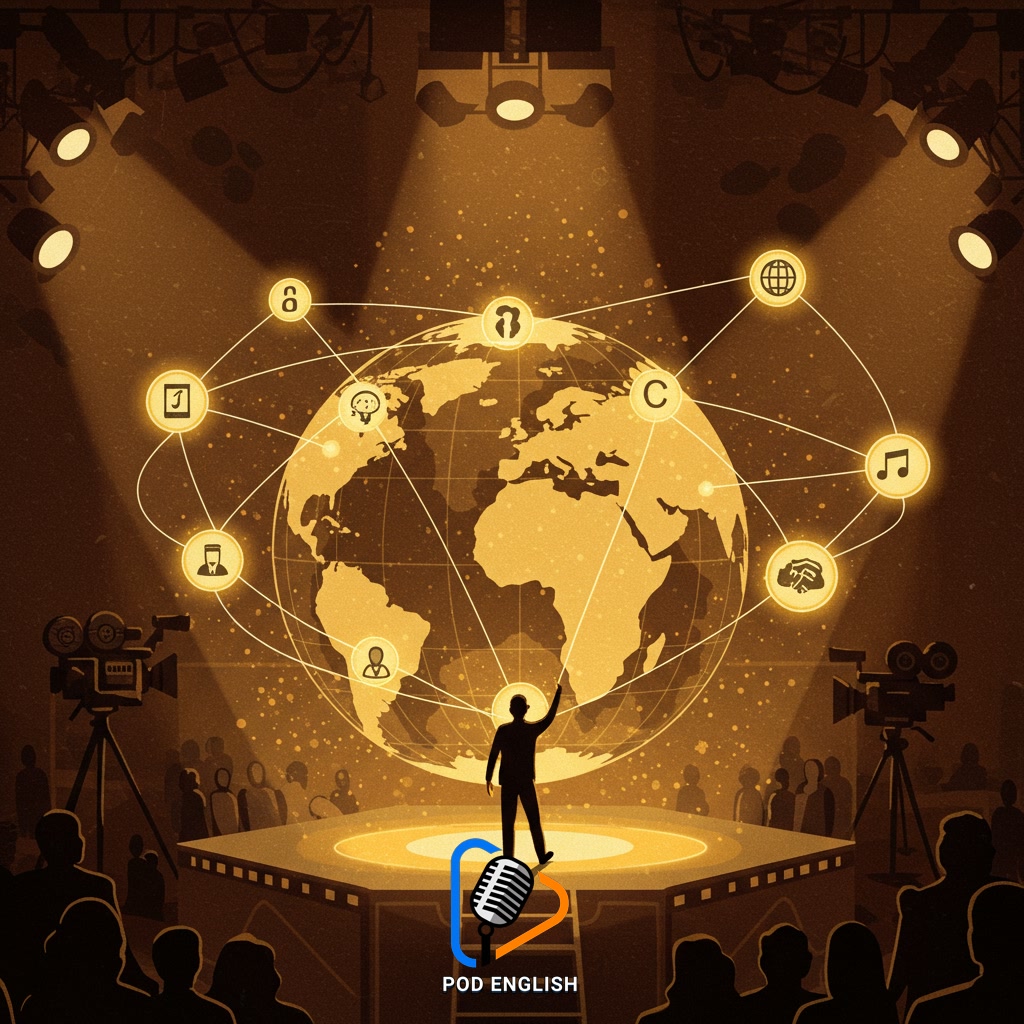Learn English
Unlock Global Film Careers: Why Learning English is Key

Pursuing a career in the global film industry necessitates strong English language skills. Proficiency in English is fundamental for accessing international projects, collaborating with diverse teams, and navigating worldwide markets. Developing English ability is a vital step to unlock significant opportunities and connect with the broader international film community.
Table of Contents
- Section 1: The Global Stage of Film and the Need for English
- Section 2: English: The Universal Language of the Film Industry
- Section 3: How English Unlocks International Opportunities
- Section 4: Accessing Global Resources and Knowledge
- Section 5: Networking and Building Your Career Abroad
- Section 6: Making the Investment: How Learning English Pays Off
Section 1: The Global Stage of Film and the Need for English
The film industry today operates on a truly global scale. Movies are not just made in one country for one audience; they are often international collaborations involving talent from different nations. Production teams, actors, directors, and technical crews frequently come together from around the world for a single project. Furthermore, films are distributed and exhibited globally, reaching audiences in countless countries. Film festivals, markets, and studios connect professionals across continents. This interconnectedness means that effective communication is essential at every stage, from script development and financing to production, marketing, and distribution. Without a common language, navigating this complex global landscape would be nearly impossible, highlighting why English proficiency is not just an advantage, but a fundamental requirement for anyone aspiring to thrive in the international film world.

Section 2: English: The Universal Language of the Film Industry
Building upon the global nature of the film industry discussed previously, English has emerged as the essential common language that facilitates this worldwide collaboration. From the major production hubs like Hollywood to multinational co-productions filmed across continents, English is the primary medium for communication among diverse professionals. Scripts are frequently written or translated into English, legal contracts are drawn up in English, and technical specifications are shared using this language. Furthermore, the most prestigious film festivals, global markets where films are bought and sold, and international distribution networks all operate predominantly in English. For filmmakers, actors, crew members, and producers from varied linguistic backgrounds, English provides the necessary bridge to collaborate effectively, understand creative visions, negotiate deals, and access worldwide audiences. Mastering this language is therefore not merely advantageous, but a fundamental requirement to participate fully in the global cinematic conversation and unlock opportunities beyond national borders.

Section 3: How English Unlocks International Opportunities
Building upon the global nature of the film industry discussed previously, English has emerged as the essential common language that facilitates this worldwide collaboration. Proficiency in English directly unlocks doors to international opportunities that would otherwise remain closed. Consider casting calls for global productions, screenplays written and distributed in English, and contracts negotiated across borders. On set, English often serves as the primary communication tool among diverse crews from different countries. Attending major film festivals like Cannes or Sundance, vital for networking and securing distribution deals, heavily relies on English communication. Mastering English allows you to fully participate in this global ecosystem, access a wider range of projects and roles, and connect with fellow professionals from around the world, significantly expanding your career horizons beyond local markets.

Section 4: Accessing Global Resources and Knowledge
Building upon the idea of English as a common language, this section focuses on how proficiency in English directly unlocks a vast library of global resources and knowledge essential for a film career. The majority of influential film industry publications, academic research, software documentation, and online learning platforms are published or available primarily in English. Accessing these resources allows aspiring and established filmmakers to stay current with international trends, learn new techniques, research global markets, understand diverse filmmaking approaches, and find information about international film festivals and funding opportunities. Furthermore, English is crucial for engaging with online communities, forums, and webinars where filmmakers share insights and expertise worldwide. Without English, much of this vital information, necessary for continuous learning and professional growth in the global film landscape, remains inaccessible.

Section 5: Networking and Building Your Career Abroad
Following the access to global resources, English proficiency becomes your essential tool for connecting with industry professionals worldwide. International film festivals, workshops, and online platforms are hubs for networking, and English serves as the common language for these interactions. Being able to communicate effectively allows you to introduce yourself, discuss projects, find collaborators, and seek opportunities beyond your home country. Building a global network is crucial for discovering international jobs, securing funding, and distributing your work on a larger scale. Mastering English is therefore not just about consuming information, but actively participating in and shaping your international film career through vital connections. Learning English directly enables you to build these bridges and expand your professional horizons significantly.

Section 6: Making the Investment: How Learning English Pays Off
Making the investment in English proficiency is not just about communication; it’s a strategic career move with significant returns. Your ability to converse fluently unlocks access to higher-paying international productions and roles that are simply unavailable in local markets. Understanding and negotiating contracts in English is crucial for securing favorable terms and protecting your interests on global projects. Furthermore, accessing international film grants, funding, and distribution channels often requires English documentation and communication. This investment of time and effort directly translates into expanded professional opportunities, increased earning potential, and the chance to work on groundbreaking projects with diverse, talented teams from around the world, proving that dedicating yourself to mastering English truly pays off in the global film industry.














